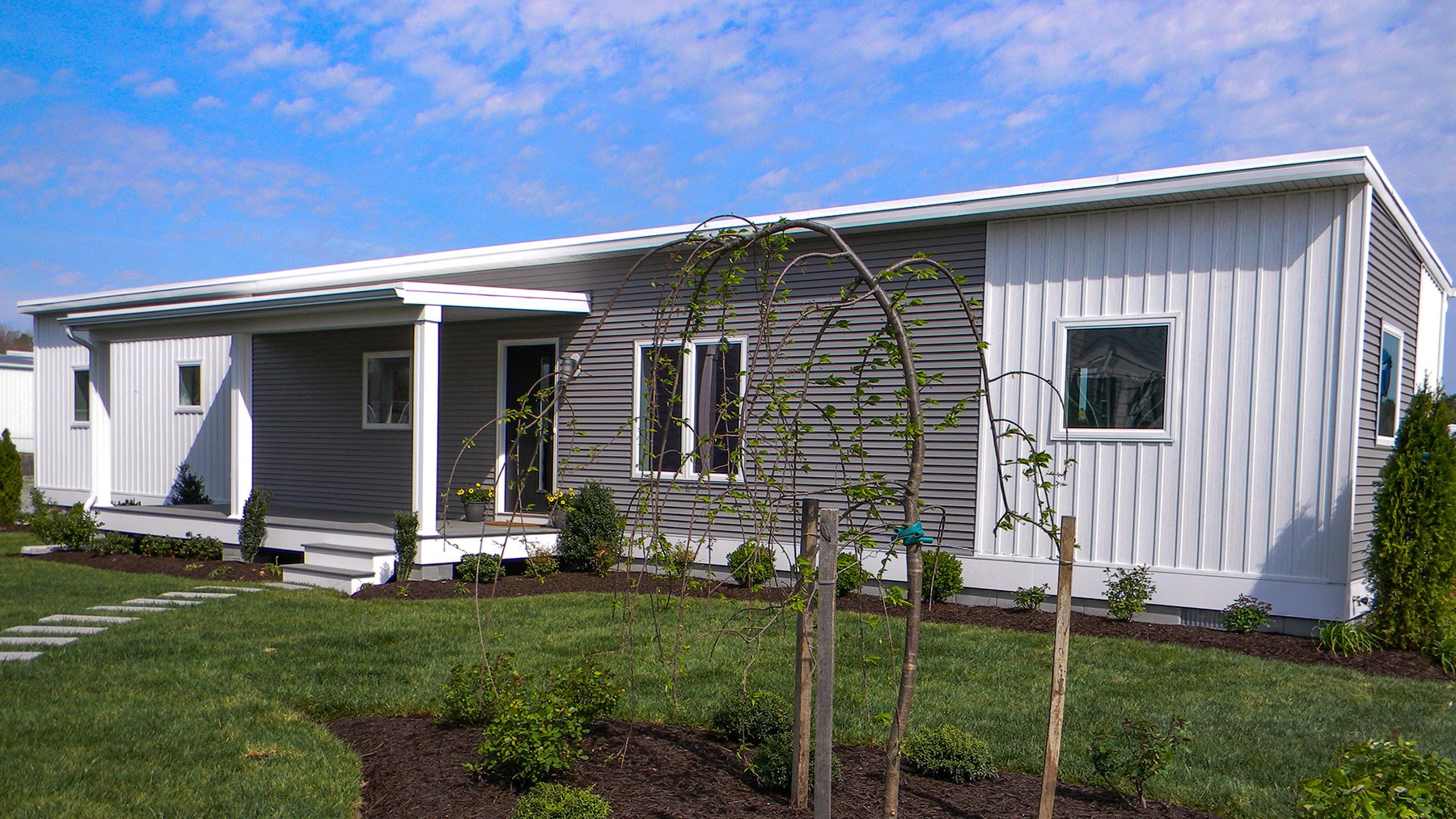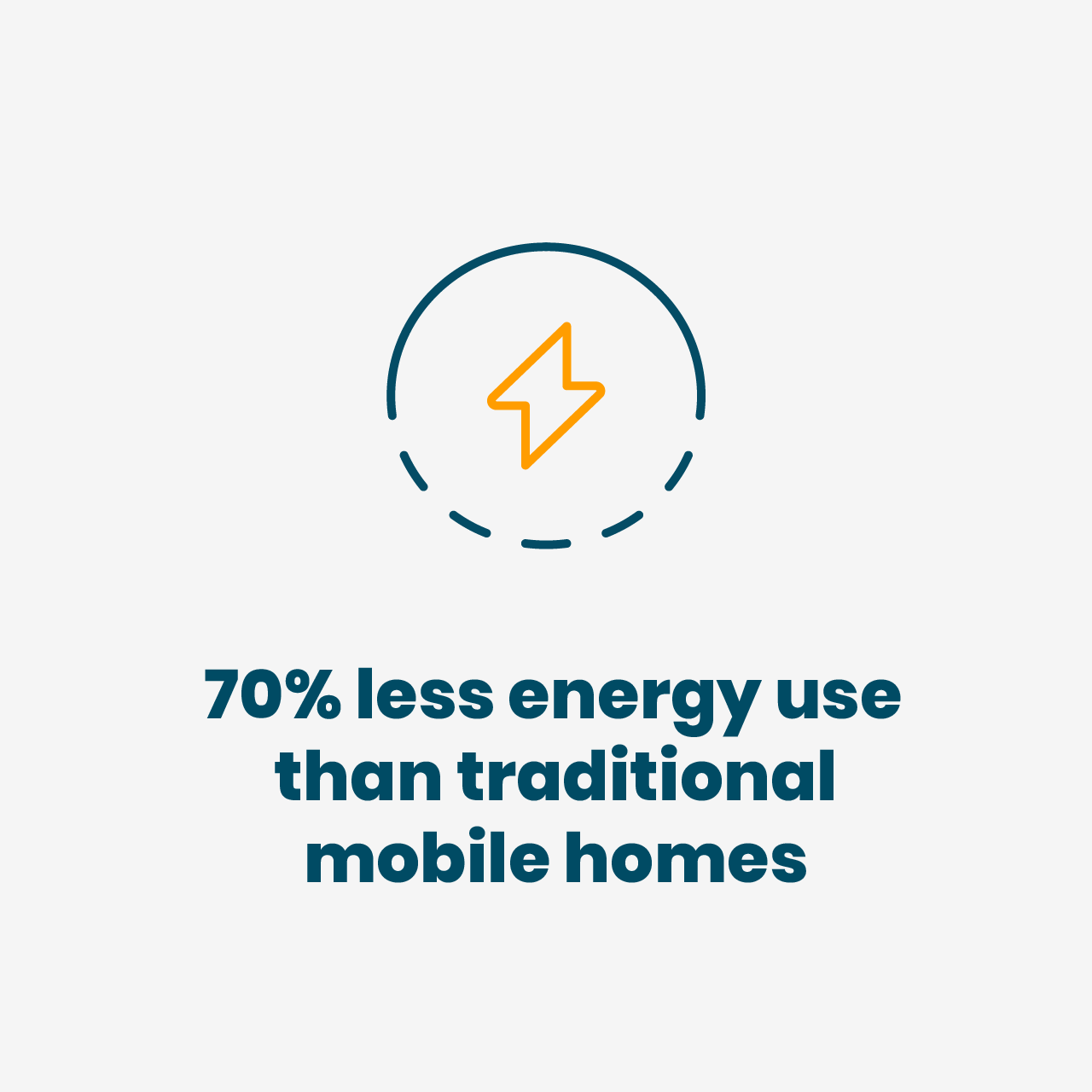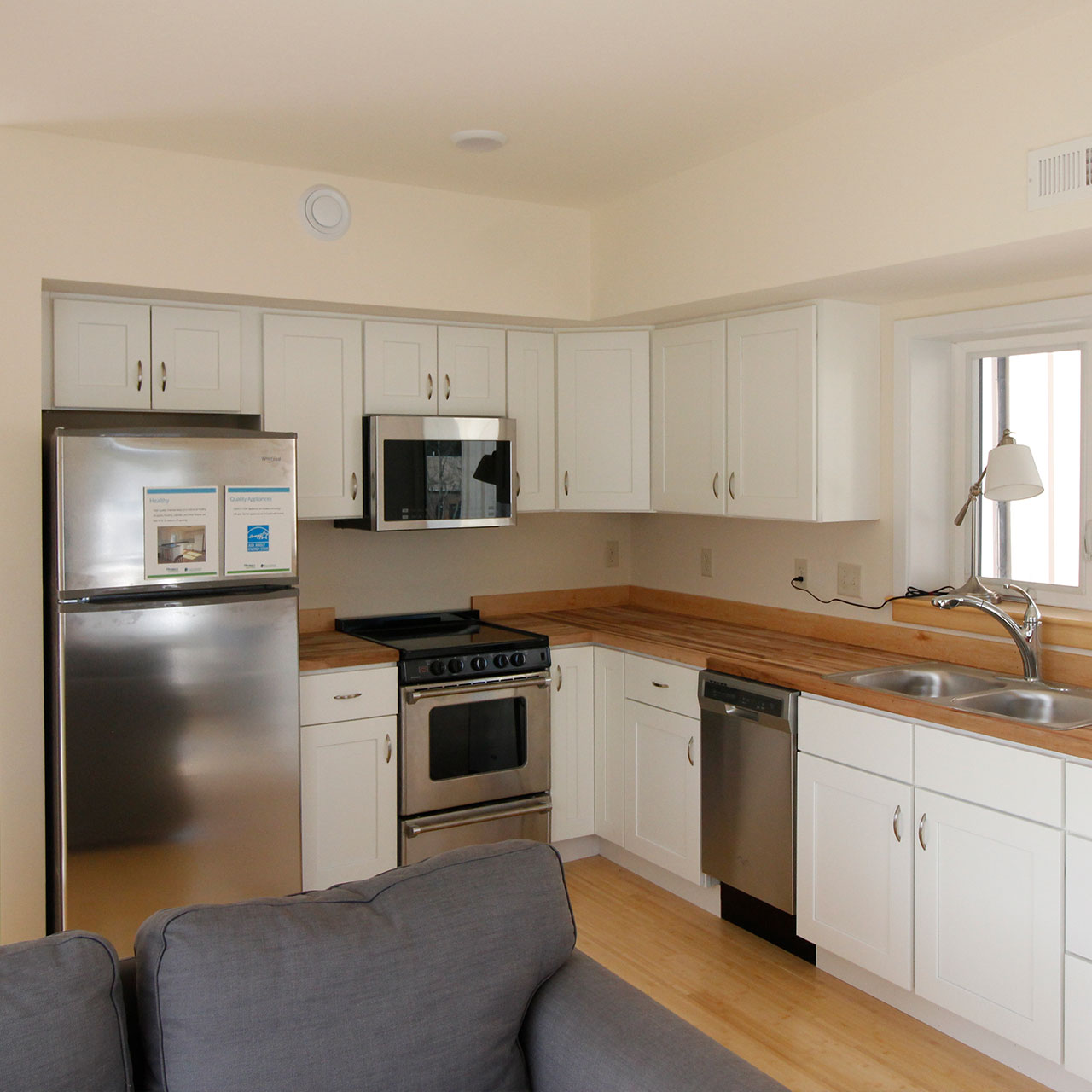What if affordable housing could drive GHG reductions and save energy?

The Challenge
For people living on a limited income, housing and energy costs are often the most burdensome. To address this issue, the Delaware Sustainable Energy Utility (DESEU) sought out a way to create affordable, efficient, and durable housing options for Delaware’s more vulnerable residents.
The Solution
DESEU hired VEIC to assess the feasibility and cost of Zero Energy Modular (ZEM) homes, which have a higher upfront cost, but are more durable, have better air quality, and use about 70% less energy than mobile or manufactured homes. Services: Building Decarbonization
The Impact
Based on positive results from the feasibility study, VEIC designed a pilot program uniting multiple partners across the clean energy and affordable housing sectors to help DESEU implement affordable, safe, and highly efficient homes for Delaware residents living on low or moderate incomes.
The need for affordable housing and equitable building decarbonization solutions
According to the U.S. Census (2011-2016), the national average energy burden for low-income households is three times higher than for households not considered low-income. With affordable housing shortages across the country, low-income households often have to turn to buildings with low up-front costs, such as manufactured and mobile homes. However, these homes are expensive to heat and cool, with hidden energy costs that can be much higher than those of comparable-size site-built homes.
Recognizing the economic and environmental imperatives around housing in its state, the Delaware Sustainable Energy Utility (DESEU) commissioned VEIC to assess the feasibility of Zero Energy Modular (ZEM) homes for use in Delaware. ZEM homes are designed to be highly energy-efficient, with solar panels that can potentially offset annual energy consumption.
VEIC was already highly engaged in the conversation around energy efficiency and climate change mitigation, affordable housing, and low and moderate income (LMI) program design, having partnered with a Vermont company in 2011 to start a ZEM program. Since then, over 100 ZEM homes have been placed around Vermont, and those owners and renters have collectively saved over $1.2 million in estimated energy costs.

ZEM homes cost less and are more energy efficient in the long term
After conducting a year-long feasibility assessment of Delaware’s housing market — including an analysis of state and federal codes, available financing, and a cost-benefit analysis — VEIC recommended moving forward with a decarbonization pilot program to implement a series of ZEM homes in Delaware.
VEIC’s conclusion: While high-efficiency modular homes cost more upfront, the combination of lower monthly energy bills and better financing options makes them more affordable in many situations:
- Lower energy bills: With installed solar, high-efficiency heating and ventilation systems, and air-tight construction modeled after passive-house principles, ZEM homes are an effective energy solution, consuming less than one-third of the energy of a typical mobile home.
- Monthly savings: Cost-benefit analysis estimated monthly savings of $200-$300, with a long-term cost benefit of up to 11% over 30 years.
- Durable and more resilient to weather events: ZEM homes are projected to last at least 30 years; a mobile home typically lasts just 15 years.
- GHG emissions reduction.
- Improved indoor air quality.
- Building efficiency: Built in a factory and assembled on site quickly and easily.
“VEIC’s expertise in low-income program design, net-zero energy, and tackling challenging but impactful projects made them the best partner for the project.”
In Delaware ZEM homes lower energy costs for owners and renters
Based on VEIC’s recommendation the project moved on to phase 2: a pilot program implementing 25 ZEM homes on land that is fully owned or on land that is long-term leased from a land trust. Milford Housing Development Corp, a nonprofit affordable housing developer, is project managing the pilot and Beracah Homes, a local modular factory, is the builder.

The first ZEM homes have arrived in Delaware and are helping low-income families reduce their cost of living and build equity in their home. With super-efficient equipment and much better air quality, the ZEM homes provide a healthy space to live in, which is essential for many low-income people battling chronic respiratory illnesses.
VEIC continues to be involved in the process and has guided and facilitated conversations between DESEU and key partners in the supply and delivery chain. VEIC provided implementation and technical support to all involved parties.
In recommending and supporting this pilot program, VEIC aims to address multiple layers of systemic challenges faced by low-income people, including sky-high utility costs, unsafe or unhealthy living conditions, lack of equity in their homes, and vulnerability to natural disasters and extreme weather events. The Delaware program is one of a number of VEIC-guided pilot programs and ZEM home implementations across the U.S. With each new ZEM deployment, we continue to remove barriers that stand in the way of safe, energy-efficient, and affordable homes for all.
Who we are and how we help
VEIC provides services under a broad clean energy umbrella that includes energy efficiency, building decarbonization, transportation electrification, and clean and flexible grid solutions. We work with utilities, state energy offices, transit agencies, non-profits, businesses, and more to advance electrification and decarbonization efforts across the country. From decarbonization program planning and implementation to federal funding services, we help clients achieve their goals and make an impact.
Reach out today so the VEIC team can learn more about your building electrification and energy efficiency ideas.



